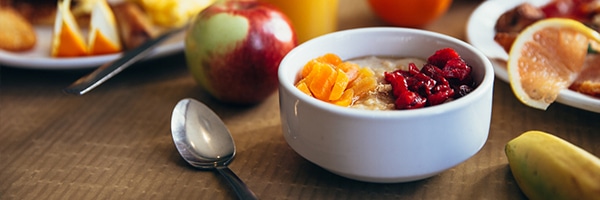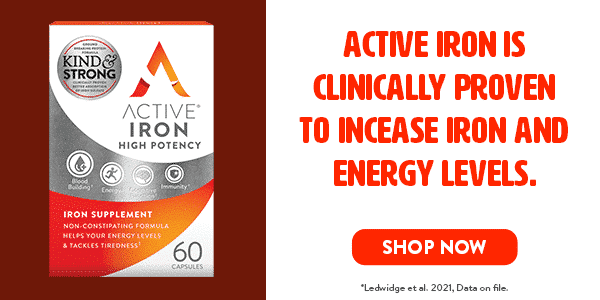- Iron Supplements for Blood Donors
- Do Iron Supplements Cause Constipation?
- Oral Iron Supplements: A Complete Guide from Active Iron
- Iron Supplements For Athletes
- The best iron supplements to take for sensitive stomachs
- The best iron supplements for vegetarians
- Best Iron Supplement for Sensitive Stomach in America
- Benefits Of Iron For Your Immune System
- How to take iron supplements for best absorption?
- What does iron saturation mean?
- What is the function of iron in our bodies?
- When to take iron supplements morning or night?
- Iron supplement side effects
- How much iron per day for a woman
In this complete guide to oral iron supplements, we will cover everything you need to know about taking these supplements, including who may benefit from them, the recommended daily dose of iron, the different types of supplements available, and tips for optimizing absorption and minimizing side effects.

We’ll also provide an overview of the benefits of Active Iron products, a line of oral iron supplements specially formulated to maximize absorption and minimize gastrointestinal side effects:
- The importance of iron
- Who should be taking an iron supplement?
- The side effects of taking oral iron
- What is the recommended daily dosage of iron?
- How to take your supplement
- What are the different types of supplements available?
Why is iron so important?
Iron is an essential nutrient for life. It plays a vital role in the production of hemoglobin, a protein in red blood cells which in turn transport oxygen around the body. Iron is also a key component in ensuring we have a robust immune system. We cannot naturally produce iron, therefore we must absorb it through our diets or through iron supplementation. Low iron is known as one of the most common nutritional disorders worldwide, effecting approximately 1 in 4 women.¹
There are several symptoms linked to low iron including fatigue, dizziness, pale skin, headaches, and shortness of breath. For those who need to boost their iron levels, oral iron supplements can be an effective solution.
Who should be taking an iron supplement?
A routine blood test will highlight who would benefit from iron supplementation. The biomarker used in detecting your iron levels is known as ferritin. Ferritin is a blood protein that stores iron and therefore is a good indicator of iron levels. If your ferritin levels are reported as lower than normal it may be the case that you are iron deficient. There are specific groups of people who are considered ‘at risk’ of developing low iron levels and would benefit from iron supplementation. These include:
- Women with periods: Monthly periods are known as the most common cause of iron loss worldwide. It is estimated that 220-250mg of iron per pint of blood is lost during menstruation.
- Pregnant and post-partum women: With blood volume increasing by up to 50% there is an increased requirement for iron during this time. Low iron levels are known to effect up to 40% of pregnant women.
- Athletes & heavy exercisers: Intense exercise is linked to hemolysis, or the breakdown of red blood cells which therefore increases the demand for iron to produce new red blood cells to transport oxygen around the body while exercising.
- Individuals with restricted diets: We naturally absorb iron through our diet. Those who eat a vegan or vegetarian diet can often struggle to meet their daily requirements.
- Blood donors: As our blood stores and transports iron, blood donation is directly linked to iron loss.

What are the side effects of taking oral iron?
Iron-rich foods such as red meat, liver, beans, nuts, and fortified cereals are a good way to increase your iron intake through your diet. However, the consumption of these foods alone is often not enough to replenish stores and it is therefore required to supplement your diet with oral iron tablets if you are at risk of iron deficiency. Unfortunately, there are several debilitating side-effects commonly associated with oral iron supplements.
These are known to include nausea, cramping, diarrhea, bloating and constipation. It is reported that 50% of people stop taking traditional iron supplements because of the unpleasant side-effects² and therefore compromise their ability to restore their iron levels.

However, Active Iron’s ‘kind and strong’ formula allows for a consistent ‘no compromise approach to supplementation over time, helping to avoid the unpleasant symptoms listed above. Active Iron’s unique protein formula provides 2X better absorption of iron, decreasing the likelihood of unpleasant symptoms by traveling through the stomach and to the natural site of iron absorption – the small intestine. Therefore, the stomach is not exposed to excess unabsorbed iron. This mechanism is clinically proven to deliver a 94% increase in iron levels, helping to improve resulting energy levels.
What is the recommended daily dose of iron?
The recommended daily dose of iron is dependent upon gender, age, lifestyle, and diet. The Recommended Dietary Allowance (RDA) of iron for men over 18 is 9mg per day, for women aged 19-50 is 18mg per day, for women aged over 50 is 9mg per day and 27mg per day for pregnant women. It is difficult to know exactly how much iron is absorbed by individuals whether it’s through their diet or via iron supplements.

Traditional oral supplements contain a high dose of iron to increase the likelihood of consumers to absorb the RDA of iron and to ultimately restore their levels. However, it is widely reported that only 5-35% of ingested iron is absorbed which in turn results in high amounts of unabsorbed iron in the body.
This excess iron in the digestive tract is the cause of the gastrointestinal (GI) related side-effects associated to supplementation. There are liquid oral iron supplement alternatives also available on the market. However, most liquid supplements contain a much lower dose of iron to ensure they do not cause these common side-effects. Although this is a great benefit, they often do not provide sufficient iron to increase iron levels with some products known to only contain 5mg per serving, which does not meet any of the RDA’s highlighted above. Active Iron products are different to all other supplements available. Its whey protein formula protects the iron from oxidation which in turn allows for greater absorption, in line with the RDA.
What is the best way to take an iron supplement?
As mentioned above, iron supplementation can result in many debilitating side-effects and can be an unpleasant experience for many people. Thankfully, there is plenty to consider when taking iron and how to maximize absorption while also avoiding sickness. Below are some summarized tips to consider when supplementing with oral iron:
- Iron is best absorbed on an empty stomach with orange juice or an alternative vitamin C-rich drink. Try to get into a routine of taking your iron either first thing in the morning or last thing at night when you know you won’t be eating a meal.
- Avoids food and drinks like eggs, chocolate, tea, and coffee as they inhibit the absorption of iron.

What are the different types of supplements available?
There are a range of Active iron products available, some of which are listed below. Each cater varying needs including specific ranges for women, pregnancy, and men.
- Active Iron High Potency: This is the highest dose of iron with each serving containing 25mg. This product is suitable for women with periods (including perimenopausal), pregnant & postpartum women, athletes, pregnant women, and individuals who follow a restricted diet.
- Active Iron for Women: This product supports both iron levels with a 17mg serving and a specially formulated multivitamin to optimize absorption. This product is suitable for women looking for a complete nutritional solution that includes a high-quality iron component.
We have highlighted the great importance of iron and the role it plays in everyday human health. However, it cannot be made by the body and must therefore me absorbed through diet or oral iron supplementation. There are several supplement products on the market–however, the vast majority of which are linked to unpleasant side-effects. Active Iron offer a range of products that are specifically tailored. Its unique formula delivers 2X absorption, helping to avoid the common side effects people experience with traditional supplements.
Food supplements are not a substitute for a varied diet and a healthy lifestyle.
¹NICE. Anaemia – iron deficiency. September 2018. ²Tolkien et al. PLoS ONE 2015; 10(2): e0117383. doi:10.1371/journal.pone.01173832015.





